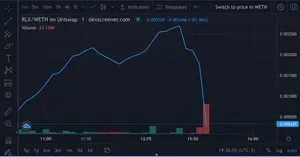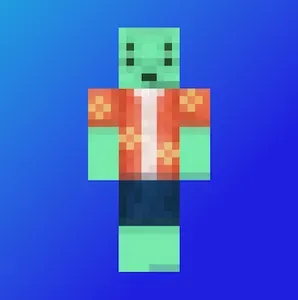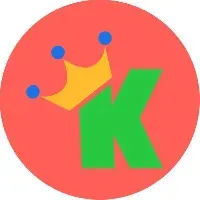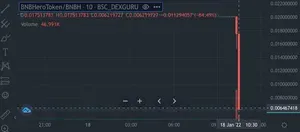The team behind Doodled Dragons rugpulls again with "Balloonsville", taunts buyers and the NFT platform they used
On January 9, the team behind an NFT project called Doodled Dragons made off with $30,000 and wrote that the charity to which they'd promised to donate "will instead now be... my bank account". A month later, the same team rug pulled again with a project called "Balloonsville", this time netting 5,000 SOL (about $590,000). The project had been listed as a "Featured project" on the Magic Eden NFT platform, a popular Solana marketplace. Before deleting their Twitter account, the Balloonsville project posted a series of tweets, including one that read, "all it took was a couple of paid actors, and boom. we did it again. y'all really believe anything nowadays. Magic Eden NFT refund everyone we scammed cause you were too stupid to ask for ID which could've easily shown we were a rug - doodled dragons". The Magic Eden NFT platform did indeed subsequently announce that they would stop allowing anonymous projects to use their platform. The platform also refunded users who sold their Balloon NFTs below the original mint price, though not the users who bought after the mint and later sold at a loss.
Realux, a project promising to "democratize" and "resolve the wealth gap" in real estate, rug pulls $23,000 only hours after launch
On January 31, a cryptocurrency project called Realux launched after fanfare from viral tweets and influencer YouTube videos. The project promised to make "real estate open to everyone, at a very low cost in a very easy way" and "resolve, once and for all, the wealth gap by removing all barriers, costs, middlemen, social background, and other limitations". The token enjoyed a fairly steady climb in value over the four or so hours it was active, increasing in value 400% from about $0.00065 to a peak of around $0.0027. The price suddenly crashed to around $0.0003 when the developer sold off 70 million of the RLX tokens, earning a profit of around $23,000. The project also deleted their website, Twitter account, and Telegram channel.
Lazy Lion Ape Club rug pulls for 50 ETH ($125,000)
Lazy Lion Ape Club, an NFT project in somewhat resembling the mega-popular Bored Apes, listed their NFTs on OpenSea on January 26. In addition to the NFTs, the project promised to generate passive income for its holders, as well as give them 3D models of their ape/lions to be used in the metaverse. The project leaders managed to generate 50 ETH (about $125,000) in sales before emptying the project of its funds and deleting their website and social media accounts.
Creators of the play-to-earn game "Mercenary" rug pull for more than $760,000
Mercenary was a short-lived play-to-earn game that promised "innovative tokenomics, to ensure the stability and longevity of the game's economy". The project had invested heavily in advertising on Twitter and in cryptocurrency outlets like BSC News to attract new players. It launched only a week before the developers rug-pulled on January 27, draining more than $760,000 and deleting the project's website and social media.
WeGro token plunges in value as its developer apparently drains 1,000 BNB ($378,000)
WeGro, a project to allow "everyone to safely participate in the hemp and cannabis industry through the supply chain", saw its token tank in price as the deployer drained 1,000 BNB ($378,000) from the pool in what certainly looked like a rug pull.
Promised NFT game "Blockverse" rug pulls 500 ETH ($1.2 million)
Blockverse, a project that promised to build a play-to-earn game on top of Minecraft, rug pulled two days after launch. The initial NFT collection sold out in only eight minutes, even though the project creators hadn't even begun to develop the game they were promising. When the creators rug pulled, they took the 500 ETH ($1.2 million) and deleted the project website and Discord server.
Solfire Finance rug pulls for $4.8 million
The Solana-based asset management protocol Solfire attracted users with its promises of over 500% APY. Partnerships and mentions from other prominent Solana projects helped the project earn legitimacy, and they enjoyed over $12 million TVL at the project's peak.
However, on January 23, the project developers drained around $4.8 million from the project before deleting the project's website and social media accounts.
Kingfund Finance rug pulls for $141,000
Kingfund Finance suddenly drained more than 300 WBNB (about $141,000) from their project. This happened a few days after users began to report being blocked by the project's Twitter account and kicked from its Telegram channel for reporting issues with unavailable funds, apparently an attempt to buy time as they prepared for their exit. Around the time of the rug pull, they took their Twitter and website offline.
Once popular play-to-earn game BNB Heroes rug pulls after a period of inactivity from the team
The BNB Heroes play-to-earn game apparently rug pulled after a period of inactivity from the development team. The developer drained almost $200,000 from the token pool, plummeting the token value by 65%.
Developer apparently rug pulls two NFT projects at once
Shortly after it was discovered that the images used for the NFT project "InvertedCulture" were nothing more than unauthorized flipped copies from a different NFT project, DNA Cultura, the creator deleted the project's Twitter account and transferred funds out of the project. Simultaneously, another project called "MadHashers" also deleted their Twitter account and drained funds. It didn't take long for people to realize that the money from both projects was going to the same account, suggesting that that the same person was behind both scams.










